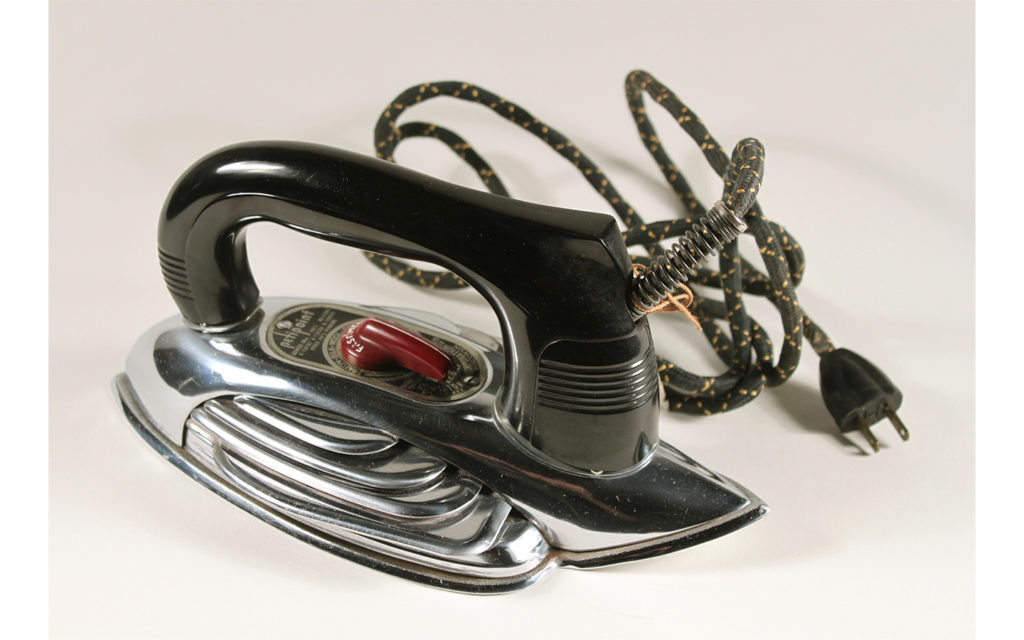What is it?
Artist
Clifford Brooks Stevens (Milwaukee 1911–1995 Milwaukee)
Mechanical Design: Edward P. Schreyer (b. Hungary, 1886–1980 Milwaukee)
Manufacturer: Waverly Tool Company, American
Title
“Petipoint” Iron, Model No. W410, patented 1941
Year
1941
Medium
Chromium-plated steel, steel, Bakelite, and fiber-wrapped cord
Dimensions
4 3/4 × 5 × 10 in.
Credit line
Gifted 2010, Gary John Gresel
About the Work
About
Clifford Brooks Stevens considered Milwaukee his home except for a period of studying architecture at Cornell University, which he left without a degree to return to Wisconsin and get to work on the ideas that interested him the most. That turned out to be industrial design and the practical applications of design to life. He opened his first office in Milwaukee in 1935 and went on to become the only Midwestern founder of the Society of Industrial Designers (1944). His retrospective at the Milwaukee Art Institute, in 1950, was the first such exhibition devoted to an industrial designer, and the Milwaukee Art Museum houses his archive. Stevens is also credited with the controversial catchphrase “planned obsolence,” which suggests that industrial design is used as a marketing ploy.
Stevens worked on projects large and small, pioneering the concept of the SUV and also reconceiving the peanut butter jar with a wide mouth. The Oscar Mayer Wienermobile is certainly one of his best-loved and most memorable contributions. Milwaukee’s Miller Brewing, Allen-Bradley, the Outboard Marine Company, and Harley-Davidson were among his leading clients.
Streamlining was a dominant aesthetic approach during the 1930s and 1940s, and this Petipoint Iron is an excellent example of elevating an onerous task into something of an adventure. The iron is shaped like a lozenge with side vents that resemble wings. Horizontal speed lines inscribed in the molded Bakelite plastic handle echo the vents: a hot, tedious chore transformed into a stylish experience.

